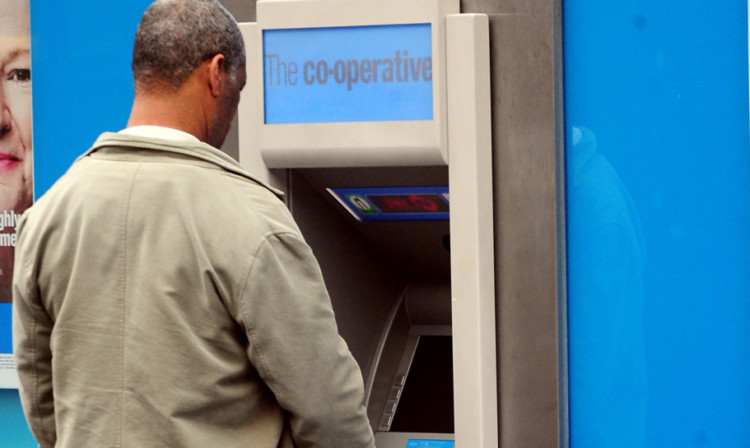THE Co-op Bank has warned of three years of pain ahead after its delayed finals results revealed a £1.3 billion loss.
Niall Booker, who became chief executive in June, said the bank still had “significant issues” to resolve and it was unlikely to be back in the black before 2016.
The bank came close to collapse last year following the discovery of a £1.5bn hole in its balance sheet.
Its troubles have been at the heart of the wider group’s current difficulties, in a year that also saw a drugs scandal involving former bank chairman Paul Flowers.
Despite the turmoil, Mr Booker said customers stayed loyal to the bank last year, with the number of current accounts up slightly to 664,775 and retail deposits down by less than 1% at £27.9bn.
He said: “We appreciate that customers and other stakeholders continue to feel angry about how past failings placed the future of the business so seriously at risk.
“I would like to apologise to them, to thank them for their continued loyalty and to thank colleagues for their commitment during such difficult times.”
The Co-op Group now owns 30% of the bank after a rescue deal that saw control handed to bondholders in a move avoiding the need for a taxpayer bailout.
However, the bank still needs another £400 million from shareholders in order to cover additional legacy issues, such as the cost of PPI redress.
If the wider Co-op Group, which is still the largest shareholder in the bank, chooses not to take part in the proposed fund-raising it will see its own interest in the business shrink again.
Mr Booker was “very confident” the bank will secure the funds, even if the Co-op Group does not participate in the cash call.
The fund-raising is expected to lift the bank’s capital ratio a key measure of its financial strength to around 9.8%, compared with the current 7.2% and the regulatory minimum requirement of 7%.
Mr Booker plans to simplify the business, reduce costs and return the bank to its roots in focusing on retail and small and medium-sized business customers.
It will also canvass opinions from customers about the bank’s ethical policy as it looks to rebuild trust in the business.
The loss of £1.3bn reflects the scale of the bank’s bad assets, such as those acquired from its ill-fated takeover of the Britannia Building Society, as well as conduct and legal risks of £412 million.
Mr Booker warned that the bank will also make losses for this year and 2015.
He added: “It is early days, but initial progress on our business plan is encouraging and we remain enthusiastic about the long-term potential for the bank.”
The Co-op Bank revealed that 1,000 staff, equivalent to 14% of headcount, left the business last year.
Unite national officer Rob MacGregor said: “Clearly the Co-op Bank faces major challenges ahead, but we call on the bank not to make the same mistakes other banks have made and to stick to its ethical principles which must include treating staff fairly.
“Staff are being asked to make sacrifices and over 1,000 staff have already lost their jobs. In order to give the bank a sustainable recovery the Co-op is going to need motivated and loyal staff, so we urge the bank to protect jobs for the long-term.”
The bank’s chief executive came under fire yesterday after details of his potential £2.9 million 2014 pay package came to light.
Mr Booker – a former senior HSBC executive – was appointed in late May and received a total package of £1.7m for his services in 2013.
The figure included £943,000 as a fixed allowance “that takes account of the broad range of specialist skills required of the role”.
The allowance is equivalent to £140,000 per month and is payable quarterly up until June 2015,
The total potential sum of £4.6m for 18 months of Mr Booker’s time is close to the £5m in deferred bonus payments that Co-op Bank yesterday said it planned to withhold from former directors who were at the institution prior to its demise.
